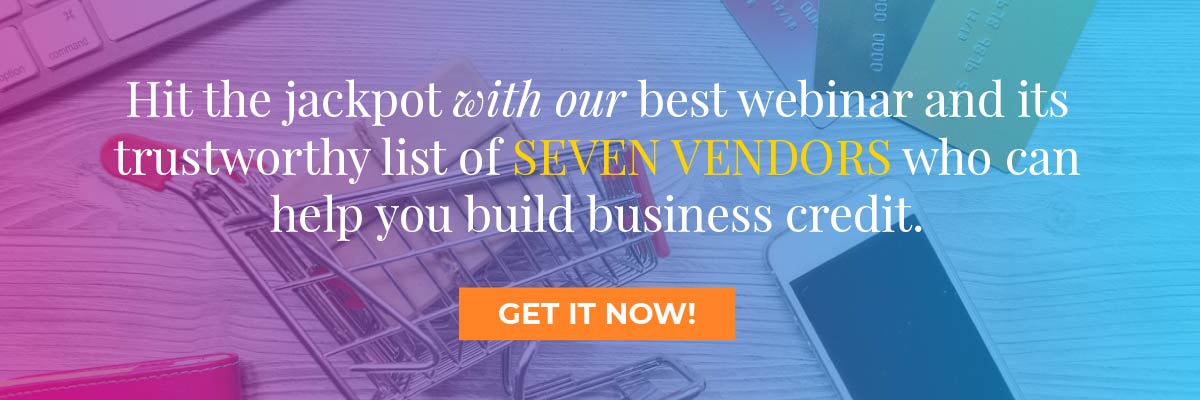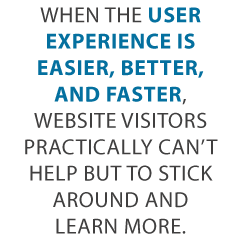- Connect With Us!
- (877) 600-2487
- info@creditsuite.com
SBA Government Loans: Your Ultimate Weapon for Defeating Business Bad Guys
Published By Faith Stewart at June 18th, 2019
A Unique Financing Weapon for Each Business Bad Guy That Rears Its Ugly Head
The Small Business Administration specializes in helping the little guys. They have a weapon in their arsenal for virtually every business bad guy out there. Whether it’s a need for working capital brought on by the the dreaded “Evil Working Capital Drain Man” or a natural disaster bad guy such as “Tornado Tommy,” the SBA government loans are just what you need to save the day.
There are a broad range of products offered through SBA programs, but for the most part the SBA does not lend money directly. They work through partner financial institutions to guarantee SBA government loans. In this way, they are able to leave the administration of the loans and disbursement of funds to those who do it on a regular basis.
How Do SBA Loans Work?
SBA loans are small-business loans guaranteed by the Small Business Administration and issued by participating lenders, mostly banks. They can guarantee up to 85% of loans of $150,000 or less, and loans that are more than $150,000 they will guarantee up to 75%. The maximum loan amount they offer is $5 million.
Due to the fact that these are SBA government loans, meaning the they have a government guarantee, financial institutions are able to offer them at lower interest rates.
Who Qualifies for SBA Government Loans?
To be eligible for SBA Government Loans, you must meet certain qualifications. These include:
- Your business must be for profit.
- Your business must be inside the US.
- Business owners must invest equity.
- You must have exhausted all other financing options.
- Your business must qualify as a small business.
- Your business must be in an eligible industry.
Hit the jackpot with our best webinar and its trustworthy list of seven vendors who can help you build business credit.
Repaying SBA Government Loans
One perk of SBA government loans is that you get more time to pay them back than you would otherwise. According to the SBA, the terms depend on how you intend to use the funds.
For example, working capital loans, or funds you intend to use for daily operation, have a repayment terms of seven years. However, funds for new equipment purchase have a term of 10 years, and real estate loan terms extend even longer to 25 years. Of course, the longer the term the lower the interest, which means lower regular payments.
How Does the SBA Government Loan Guarantee Actually Work?
With little exception, the SBA does not actually provide the funds for the loans they guarantee. The lenders that partner with them provide the funds, but the agency guarantees a portion. Currently, they will guarantee up to $3.75 million.
What does that mean? It means that lenders are able to offer better interest rates and terms than they would otherwise be able too. This is because there is a reduced risk with the SBA guarantee. If the borrower defaults on the loan, the Small Business Administration will pay out their guarantee amount.
Is an SBA Government Loan it Too Good to Be True?
If you are reading this thinking “Sweet! I can get a loan and if I can’t pay it back, no big deal,” then yes, it is too good to be true. Not paying debt you owe is always a big deal. In fact, it is such a big deal that the SBA requires a personal guarantee on business loans from every owner that has at least a 20% stake in the business, as well as others who hold top management positions.
How to Apply for an SBA Government Loan
One of the downsides to SBA government loans is that they have a lengthy and somewhat complicated application process. There is a lot of red tape involved, but understandably so considering it is the federal government and they are guaranteeing a huge chunk of the loan.
Gather the Information
The first thing you have to do is gather the information you will need. This includes:
- The SBA borrower loan information form
- Statement of personal history
- Personal financial statement
- Personal income tax returns for the previous 3 years
- Tax returns for the business for the previous 3 years
- Business certificate or license
- Business lease
- Loan application history
This list along with links to forms and templates is available at SBA.gov. Once you have this information, you can start looking for a lender.
Realize that once you and the lender determine which loan program will work best for your needs, there may be additional paperwork, as each loan has its own set of requirements. This is a general list for beginning the application process for all loans.
Find an SBA Partner Lender
There are several different ways to do this. The first way is to contact your SBA district office. You can find contact information through the website. Another option is to use the SBA lender match option on the website.
It’s pretty handy. All you have to do is enter some basic information about your business and what you need funds for, and the “calculator” matches you with a list of potential lenders that could meet your needs.
How Does the SBA Choose Lender Partners?
The Small Business Administration has a couple of different lender partner programs, and some loan programs are only available from certain types of lenders. For example, SBA 504 loans are only available through a bank, online lender, or a certified development company (CDC.) Community advantage loans are only available through community-based lenders like local banks and credit unions.
Regardless of the type of loan programs they administer, all SBA lenders must meet certain criteria.
SBA’s Certified Lender Program (CLP)
To qualify to be a CLP, a lender must have some experience and meet certain standards set forth by the SBA. What does it mean for borrowers if their lender is a CLP? It means that the SBA is able to expedite the application by simply reviewing the credit decision of the lender rather than underwriting the loan itself.
Hit the jackpot with our best webinar and its trustworthy list of seven vendors who can help you build business credit.
SBA’s Preferred Lender Program (PLP)
Lenders in the PLP are more experienced and meet even more rigorous standards than CPL lenders. They have the ability to underwrite and set their own eligibility standards without the SBA needing to review the application.
The List of Weapons
So what kinds of weapons are in this bag of government goodies? Who can they defeat, and what kind of businesses can they rescue? Let’s take a closer look.
Types of SBA Government Loans
7(a) Loans: All Purpose Business Bad Guy Annihilator
This is the Small Business Administration’s flagship loan program. It offers federally funded term loans up to $5 million. The funds can be used for expansion, purchasing equipment, working capital and more. Banks, credit unions, and other specialized institutions in partnership with the SBA process these loans and disburse the funds.
The minimum credit score to qualify is 680, and there is also a required down payment of at least 10% for the purchase of a business, commercial real estate, or equipment. The minimum time in business is 2 years. In the case of startups, business experience equivalent to two years will suffice.
This is by far the most popular of the SBA loan programs, and the funds are available for a broad range of projects, from working capital to refinancing debt, and even buying a new business or real estate.
504 Loans
These loans are also available up to $5 million and can buy machinery, facilities, or land. They are generally used for expansion, and private sector lenders or nonprofits process and disburse these SBA government loans. They work well for commercial real estate purchases especially.
Terms for 504 Loans range from 10 to 20 years, and funding can take from 30 to 90 days. They require a minimum credit score of 680, and collateral is the asset it is financing. There is also a down payment requirement of 10%, which can increase to 15% for a new business.
There is also a requirement you be in business at least 2 years, or that management has equivalent experience if the business is a startup.
Microloans
Microloans are available in amounts up to $50,000. They work for starting a business purchasing equipment, buying inventory, or for working capital. Community based non-profits administer microloan programs as intermediaries, with financing coming directly from the Small Business Administration.
Interest rates on these loans are 7.75% to 8% above the lender’s cost to fund, and the terms go up to 6 years. They can take upwards of 90 days to fund. The minimum credit score is 640, and the collateral and down payment requirements vary by lender.
SBA disaster loans
Remember that nasty “Tommy Tornado?” He and his friends lightening, hurricane, and flood can do a lot of damage. However, the SBA has a special weapon designed just for these guys. They are the SBA Disaster loans.
Available in amounts up to $2 million, so they are actually processed directly through the SBA. They are available to small-business owners affected by natural disasters. Terms go up to 30 years, and the maximum interest rate is 4%. You can apply for disaster loans directly at SBA.gov.
The minimum credit score for disaster loans is 660. Collateral is necessary if the loan goes over a certain amount, usually $25,000, if it is available or when it becomes available. So for a military economic injury disaster that amount is $50,000. A down payment is not necessary either way.
SBA Express loans
These loans max out at $350,000 and have a maximum interest rate of 11.50%. Terms range from 5 to 25 years, and the SBA guarantee is less that with their other loan programs at 50%. To qualify, your credit score must be above 680, and you must have a debt to service ratio of 1.1 or higher. If the loan is greater than $25,000, collateral may be necessary depending on the lender.
The turnaround for express loans is much faster, with the SBA taking up to 36 hours to give a decision. Necessary paperwork for application is less also, making express loans a great option for working capital, among other things, if you qualify.
SBA CAPLine
There are 4 distinct CAPline programs that differ mostly in the expenses they can fund. Each of them carries a maximum amount of $5 million and an interest rate that ranges from 7% to 10%. So funding can take 45 to 90 days.
The four different programs are:
- Seasonal CAPLines -Financing for businesses preparing for a seasonal increase in sales.
- Contract CAPlines -Financing for business that need funding to fill a contract.
- Builder’s CAPLines -Financing for businesses taking on a real estate or construction project.
- Working capital CAPLines -Financing for businesses that are struggling with a short-term slump in sales.
Credit score must be at least 680 to qualify, and there is no minimum time in business requirement unless you are getting a seasonal CAPline. That one carries a one year in business requirement.
SBA Community Advantage Loans
This program is a pilot set to either expire or extend in 2020. Its purpose is to promote economic growth in underserved areas and markets. Credit decision makers overlook factors such as poor credit or low revenue if the business has the potential to stimulate the economy or create jobs in underserved areas.
Loan amounts range from $50,000 to $250,000 with a maximum interest rate of 11%, while terms range up to 25 years.
Hit the jackpot with our best webinar and its trustworthy list of seven vendors who can help you build business credit.
Other Programs
In addition to these loan program, the SBA offers additional programs for certain groups. These include:
- SBA Veterans Advantage- General-use business loans with no guarantee fee for majority veteran-owned small businesses.
- SBA International Trade- General-use financing for businesses actively involved in international trade or hurt by competition from imports.
- And SBA Export Working Capital Program- Short-term working capital for exporters backed by invoices or other business assets.
Benefits and Drawbacks of SBA Government Loans
There are many reasons to apply for an SBA loan, but there are just as many reasons someone who qualifies for financing another way may not want to do so. For example, SBA loans offer longer repayment terms and lower interest rates, but there is an extensive and complicated application process. There are low down payment requirements and a variety of loan programs, but the personal credit score requirement is high and there are strict conditions for approval.
One unique and often overlooked benefit of SBA government loans is that some programs offer continued support for starting and running their business. This can be a huge benefit, especially for those startups with minimal experience.
Fight the Business Bad Guys with The SBA’s Weapons Arsenal
With the multitude of financing weapons offer by the Small Business Administration, business owners can fight their financial battles and come out on top. The application process is rigorous, but so is boot camp. When you complete boot camp, you have the tools you need to survive. So the same is true of the SBA government loans application. If you make it through, you have what you need to survive whatever may come.

 " class="attachment-blog-single size-blog-single wp-post-image" alt="Get Business Credit Cards for New Businesses Credit Suite-Business Line of Credit Decoded" title="Get Business Credit Cards for New Businesses">>
" class="attachment-blog-single size-blog-single wp-post-image" alt="Get Business Credit Cards for New Businesses Credit Suite-Business Line of Credit Decoded" title="Get Business Credit Cards for New Businesses">>
